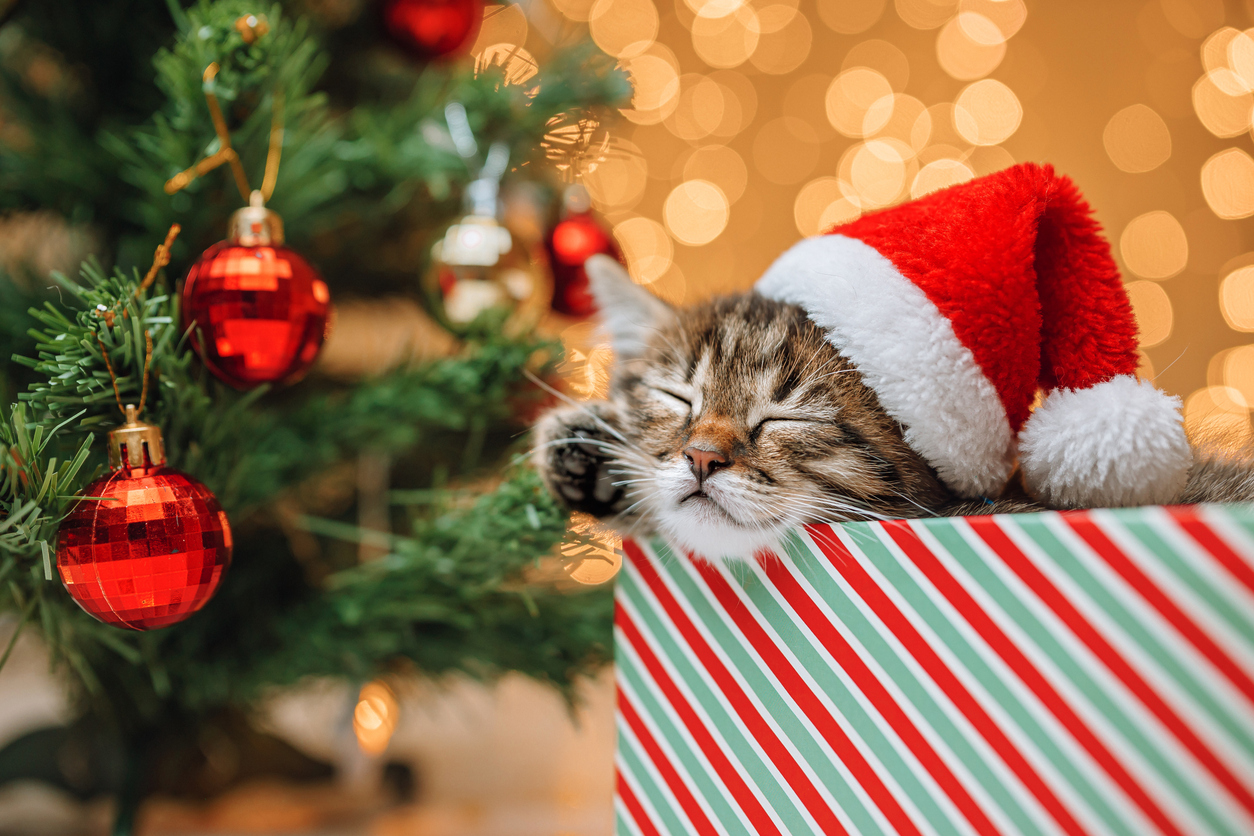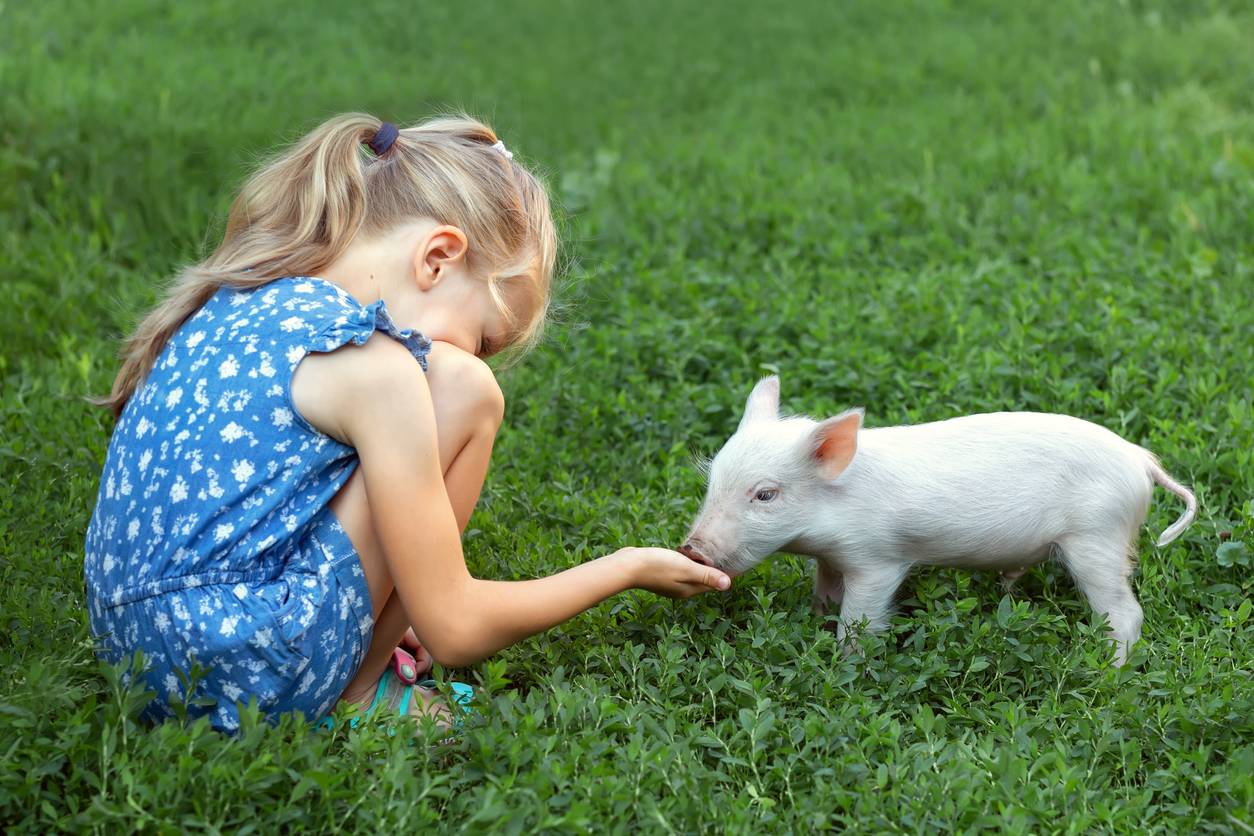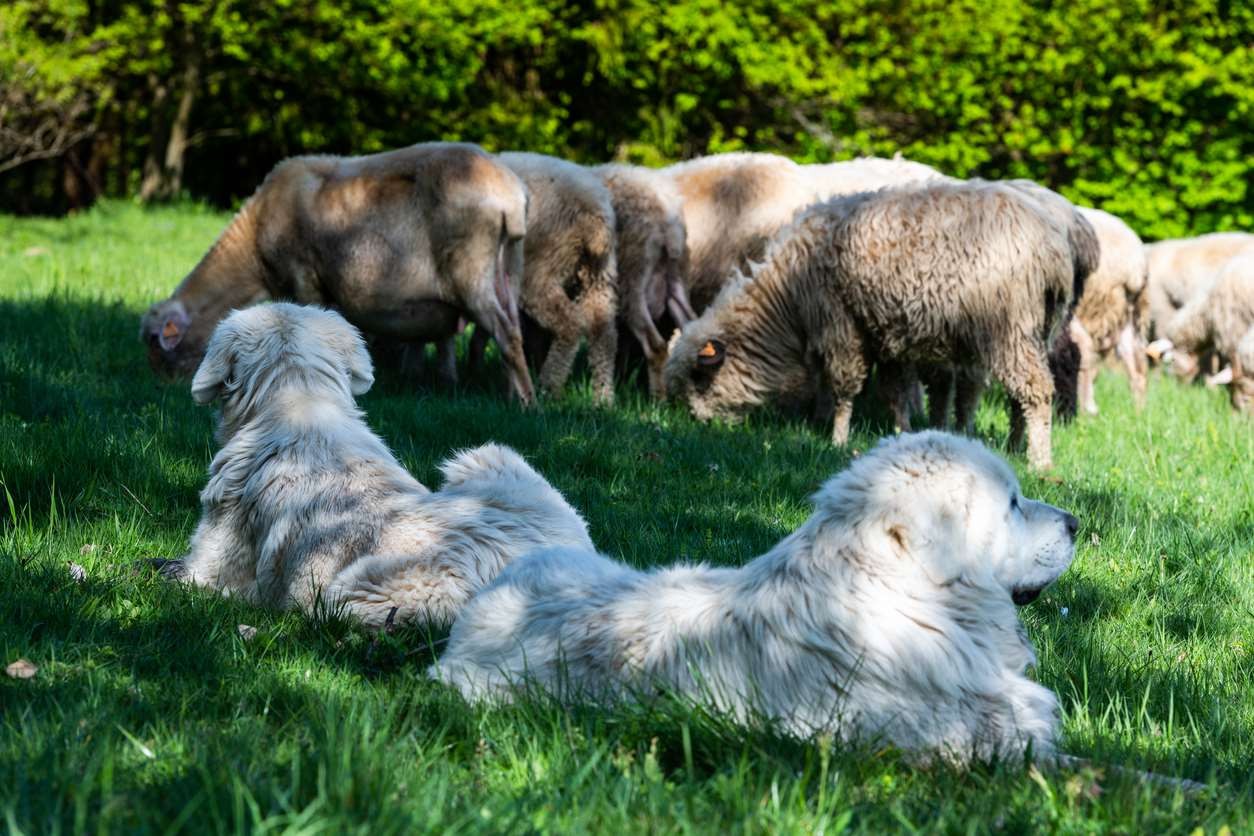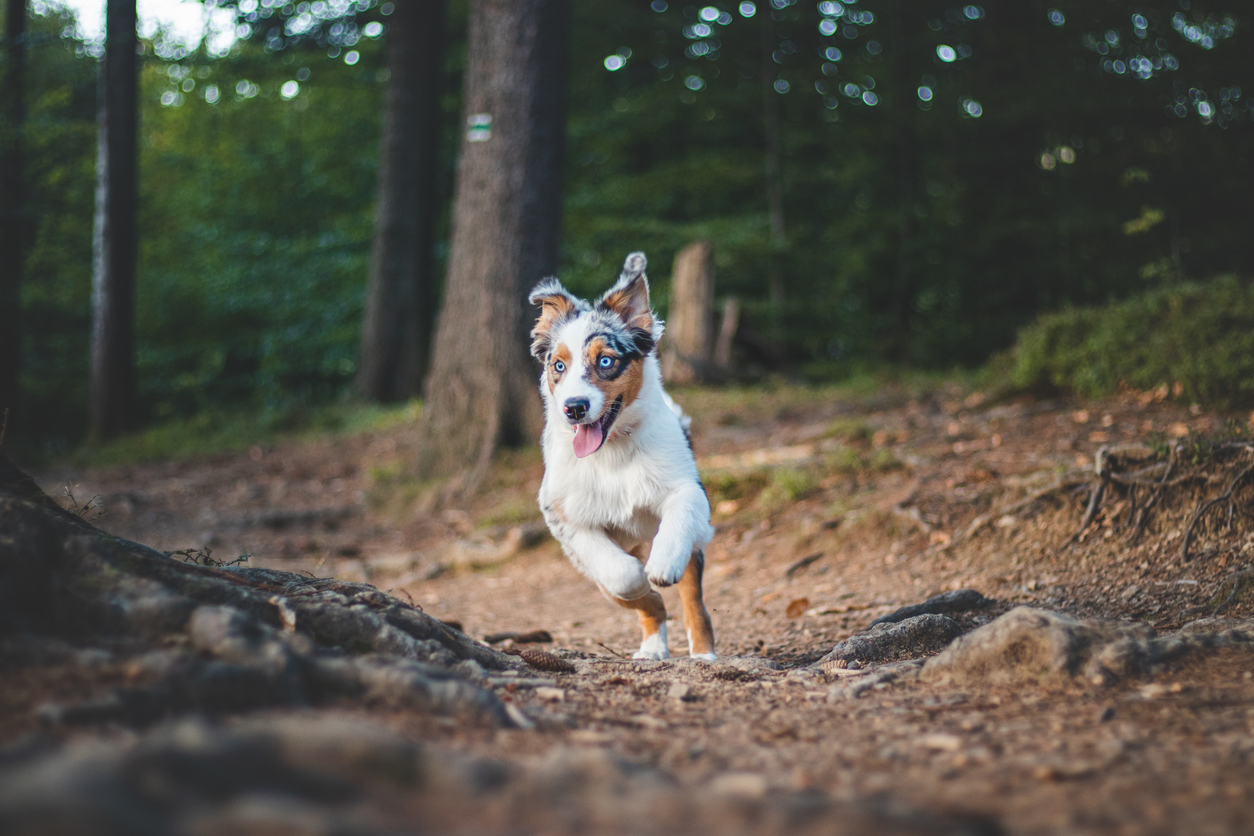The holiday season is a time of joy and celebration, but it also brings unique risks for pets. At All Animal Veterinary Services in Modena, NY, we understand how much pets and farm animals mean to their owners. We are here to help you keep all your beloved companions and livestock happy, healthy, and safe throughout the winter festivities. Follow these Pet Holiday Safety Tips to protect your cats, dogs, and livestock while celebrating this joyful season.
Keep Pets Out of Holiday Treats
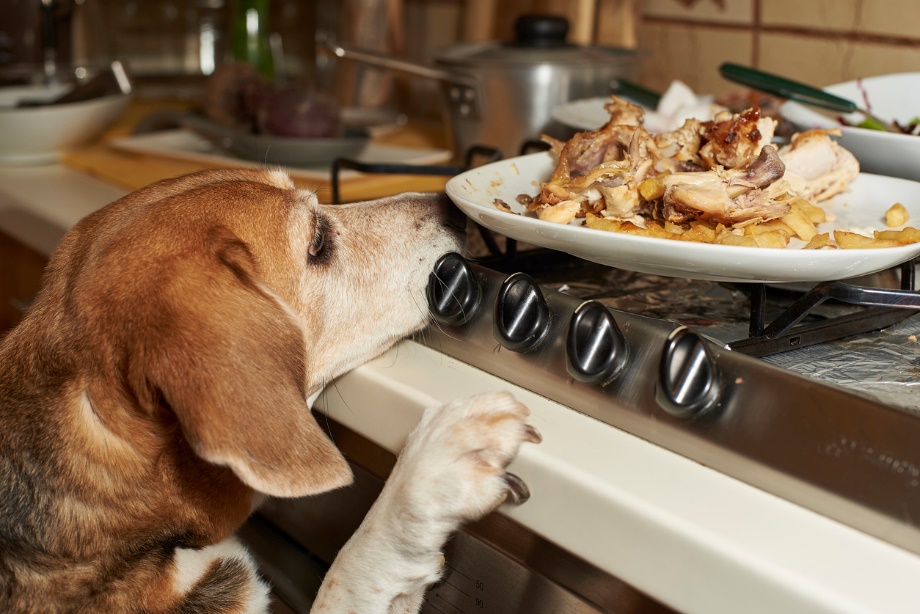
The holidays are full of tempting treats but treats for us can be harmful to pets. Keep these foods away from your furry friends to follow essential Pet Holiday Safety Tips:
- Chocolate – Even tiny amounts of theobromine and caffeine in chocolate can cause vomiting, diarrhea, tremors, or seizures in pets.
- Grapes and Raisins – A single grape or raisin can lead to kidney failure in dogs and cats.
- Macadamia Nuts – These can cause tremors, fever, and weakness in dogs.
- Xylitol – This sugar substitute, found in gum and other sugar-free treats, can cause a dangerous drop in blood sugar and liver failure.
- Onions, Garlic, and Chives – Common in holiday dishes, these can damage red blood cells, leading to anemia.
- Meat or Poultry Bones – Cooked bones can splinter, causing choking or internal injuries.
If your pet ingests any of these foods, contact the Pet Poison Helpline immediately.
Decorations: Festive but Risky
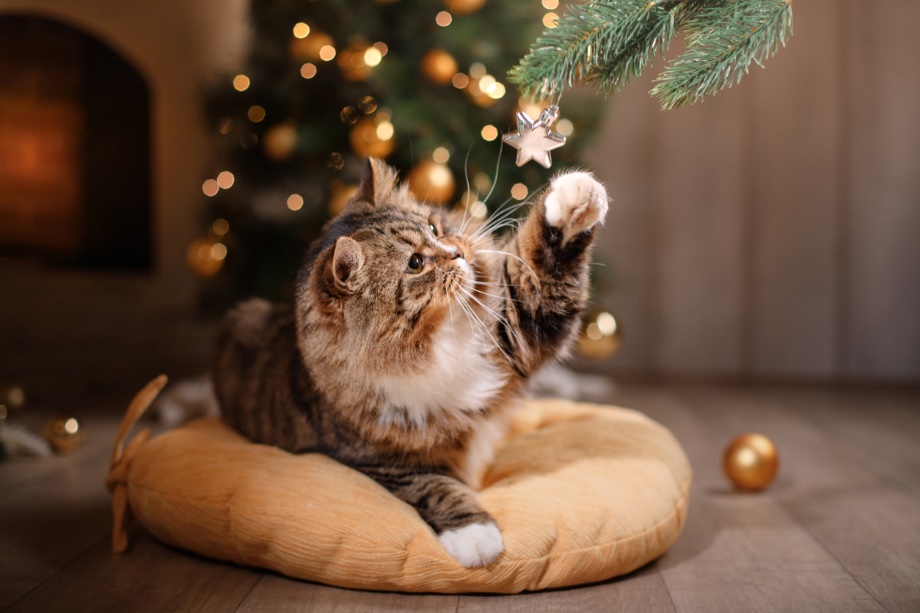
Decorations bring holiday cheer but can also pose risks for pets. A key component of Pet Holiday Safety Tips is ensuring your home is free of these hazards:
- Tinsel and Ribbons – These shiny, dangling objects are irresistible to pets but swallowing them can lead to dangerous intestinal blockages and internal injuries.
- Breakable Ornaments – Pets may knock ornaments off the tree, leading to sharp pieces that can cut paws, mouths, or internal organs if swallowed. Choose non-breakable ornaments to reduce risks.
- Electrical Cords – Chewing on cords can result in electrical shock, burns, or fatal electrocution. Keep pets away from cords and use pet-safe cord covers. Unplug your holiday lights when not in use.
Toxic Holiday Plants
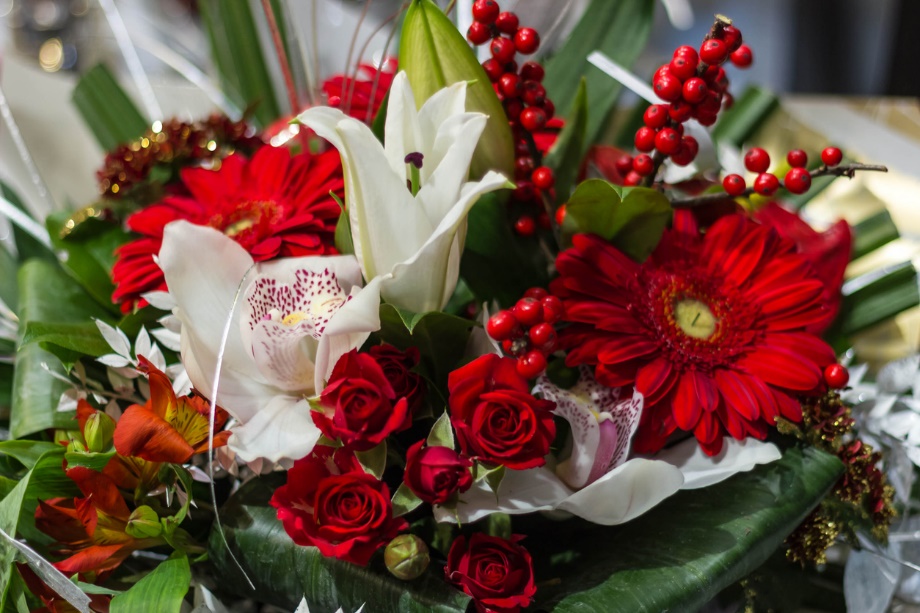
Some holiday plants can be dangerous to pets. As part of your Pet Holiday Safety Tips, keep the following plants out of reach:
- Poinsettias – Mildly irritating but generally not life-threatening.
- Mistletoe and Holly – Can cause vomiting or, in severe cases, heart issues.
- Lilies – Extremely toxic to cats, even in tiny amounts. Dogs may experience mild gastrointestinal upset.
Christmas Tree Safety
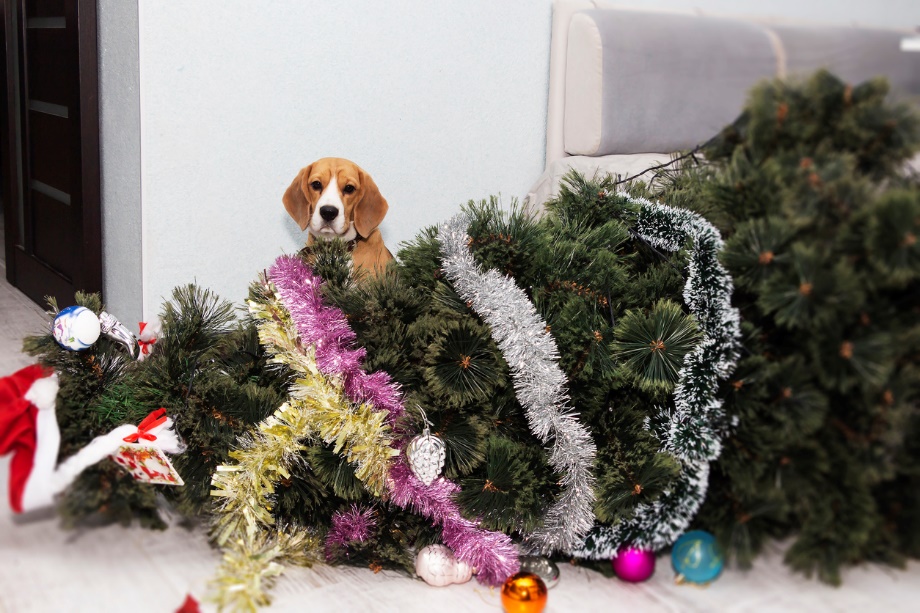
Your Christmas tree can be a hazard for pets. Follow these Pet Holiday SafetyTips for tree safety:
- Secure the Tree – Anchor it to prevent it from tipping over.
- Tree Water – Cover the tree stand to prevent pets from drinking harmful water.
- Sweep Up Needles – Ingested needles can cause irritation or blockages.
Create a Pet-Safe Holiday Atmosphere
The holiday season is a perfect time to create a cozy environment for your pets. Ensure it is safe by following these Pet Holiday Safety Tips:
- Candles – Use flameless candles to avoid burns or fire hazards.
- Essential Oils – Oils like tea tree, peppermint, and eucalyptus are toxic to pets. Stick to pet-safe scents, such as simmer pots with ingredients like cinnamon sticks, apple slices, or dried lavender. Keep an eye on the simmer pot while pets are nearby and store it safely out of reach whenever you cannot supervise to prevent accidental ingestion or burns.
- Fireplaces – Always use sturdy screens to shield pets from flames and hot embers and supervise pets whenever a fire is burning.
Cold Weather Precautions for Pets and Farm Animals
Chilly winters in Modena and the surrounding areas can affect all animals, from household pets to livestock. Taking the right precautions ensures your furry, feathered, and hoofed friends stay safe and comfortable during colder months.
Protecting Household Pets
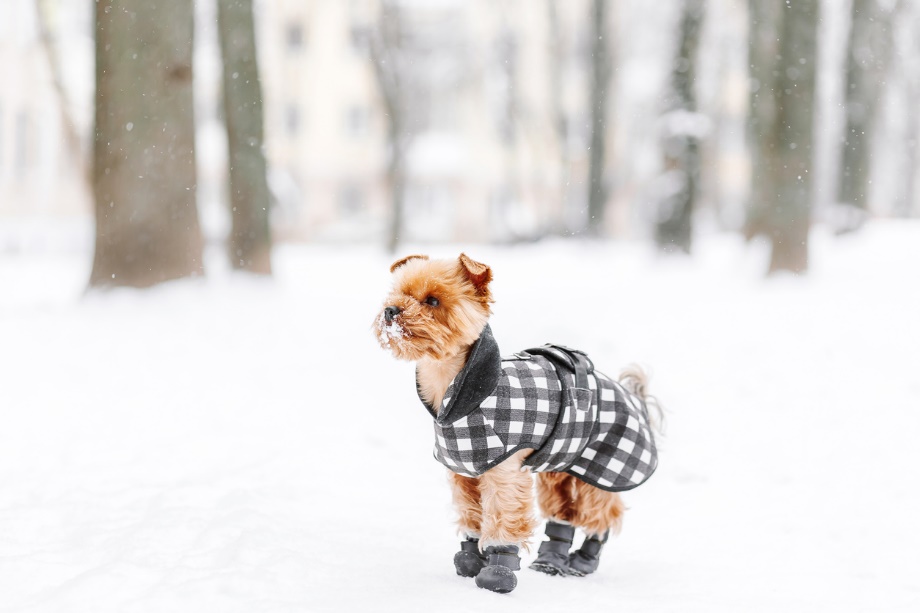
Household pets, especially short-haired breeds, puppies, seniors, and those with medical conditions like diabetes or heart disease, are more vulnerable to the cold. Keep your pets warm and safe by following these tips:
- Know Their Tolerance: Monitor your pets outdoors. Shivering, whining, or reluctance to move may indicate they are too cold.
- Bundle Them Up: Dress short-haired dogs in sweaters or coats during walks. Ensure their outerwear covers their chest and belly for maximum warmth.
- Protect Their Paws: Use paw balms or booties to shield your pet’s feet from freezing surfaces or ice-related injuries.
- Be Alert to Antifreeze Dangers:Antifreeze spills are a hidden hazard during the colder months. Its sweet taste attracts pets, but even tiny amounts can be lethal. Clean up any spills immediately and use pet-safe antifreeze products containing propylene glycol instead of ethylene glycol.
Caring for Farm Animals
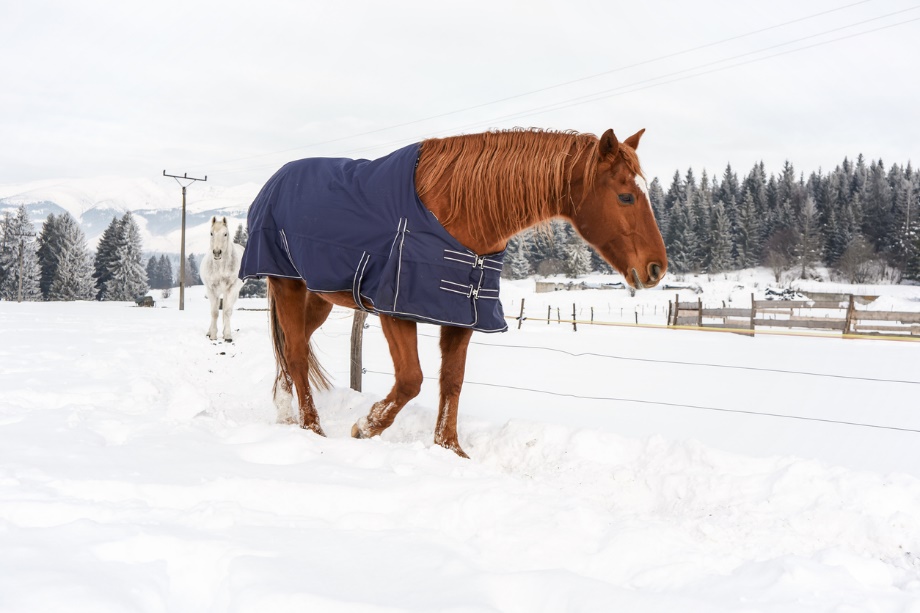
Farm animals such as horses, cows, goats, and chickens are also susceptible to cold stress. Providing them with proper care is crucial:
- Shelter: Ensure animals can access to dry, draft-free shelters to shield them from wind and snow.
- Fresh Water: Prevent water sources from freezing by using heated water buckets or de-icers.
- Nutrition: Wintry weather increases energy needs. Provide extra feed to help livestock maintain body heat.
- Frostbite Prevention: Protect sensitive areas, such as chickens’ combs and wattles, with petroleum jelly, and monitor all animals for signs of frostbite.
Additional Resources
Whether caring for pets or livestock, these measures can help your animals stay safe during winter weather. For more detailed guidance, visit the AVMA website and read the article Cold Weather Animal Safety and Animal Welfare Institute Protecting Farm Animals in Extreme Weather. If you have questions, contact All Animal Veterinary Services for expert advice tailored to your animals’ needs.
Be Prepared for Emergencies
Accidents can happen despite your best efforts. As part of your Pet Holiday Safety Tips, keep these numbers handy:
- Pet Poison Helpline: 855-764-7661
- All Animal Veterinary Services: 845-255-2900
- 24-hour Emergency Veterinary Hospital
Celebrate Safely with All Animal Veterinary Services
At All Animal Veterinary Services, we are here to help you enjoy a safe and joyful holiday season with your pets. If you have questions or need to schedule a wellness visit, contact us today. Following these Pet Holiday Safety Tips will ensure your pets stay happy and healthy during this festive time.
Happy Holidays from All Animal Veterinary Services!

